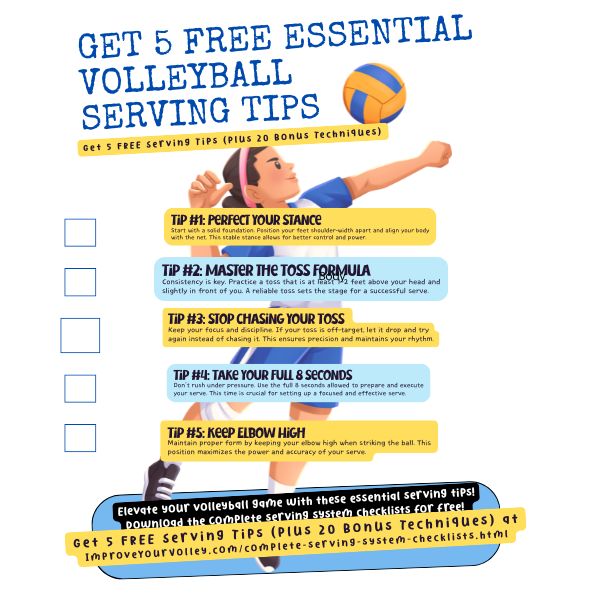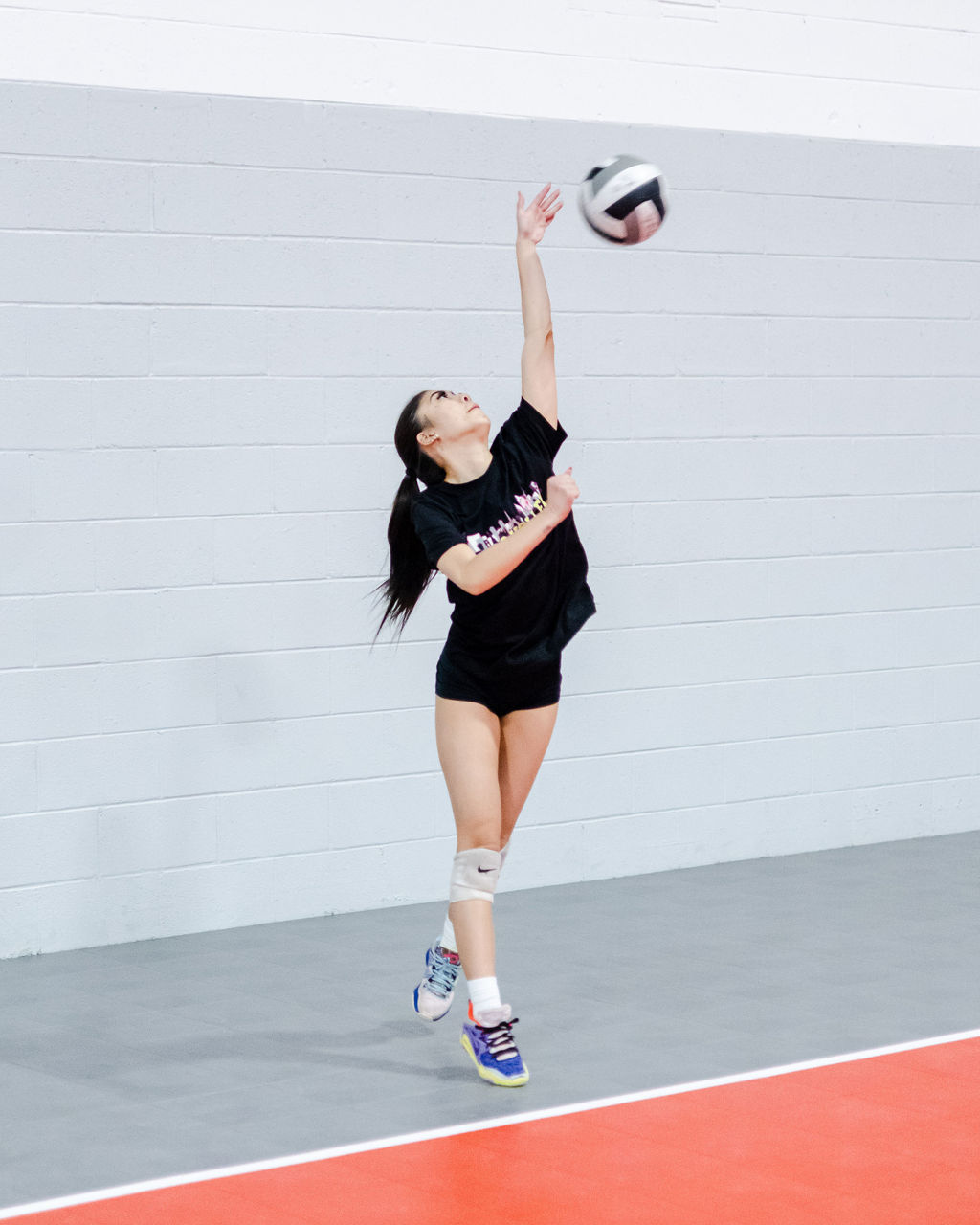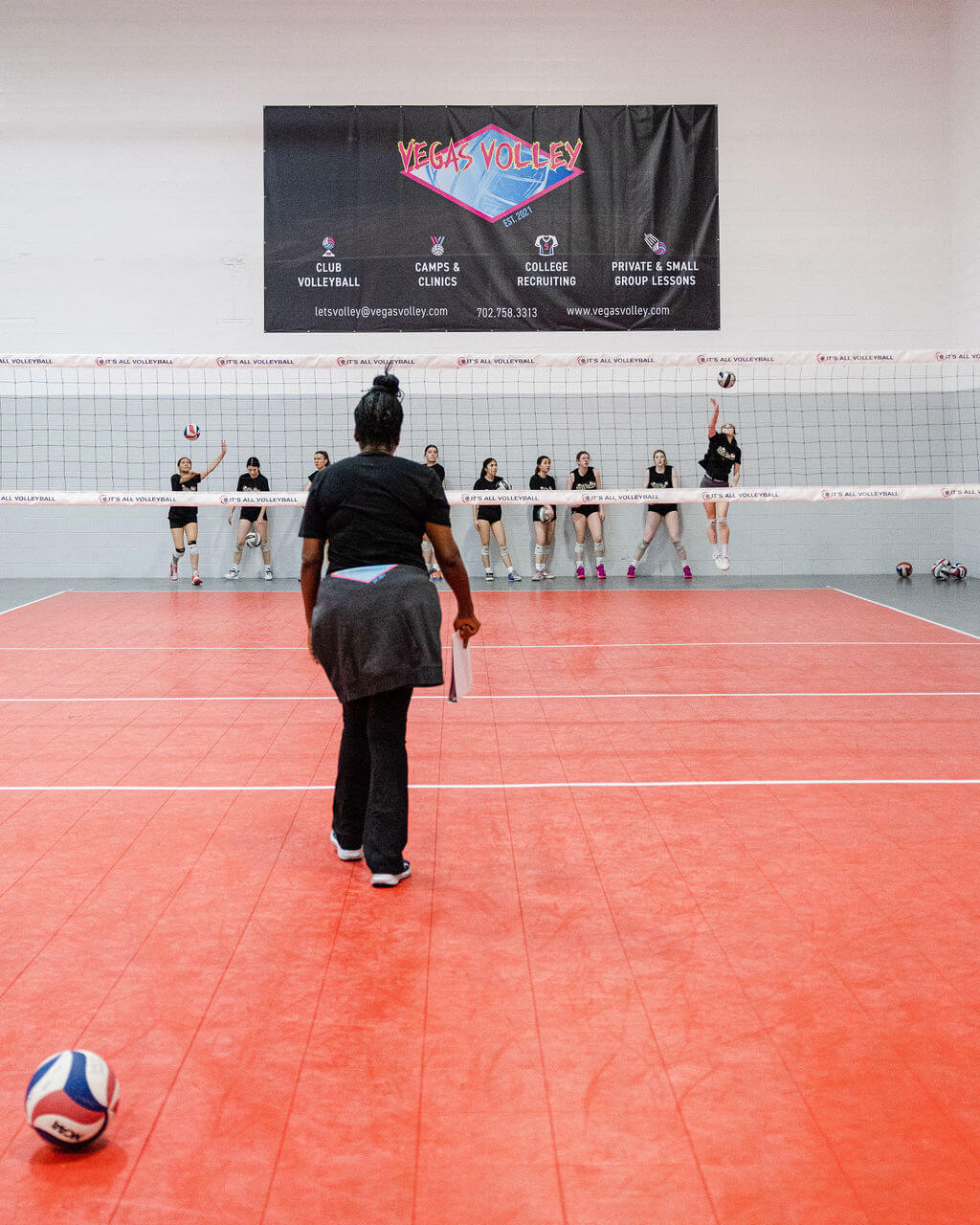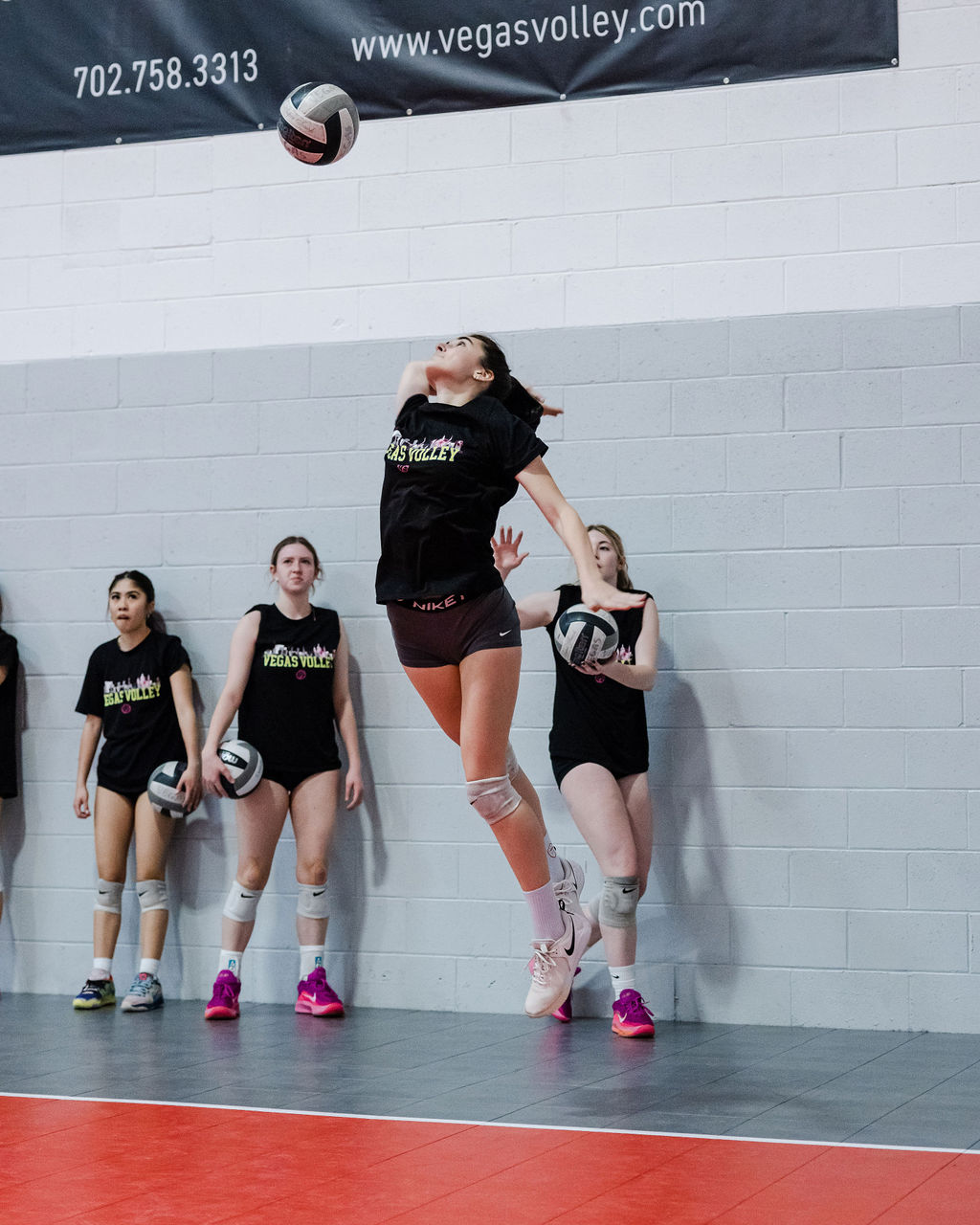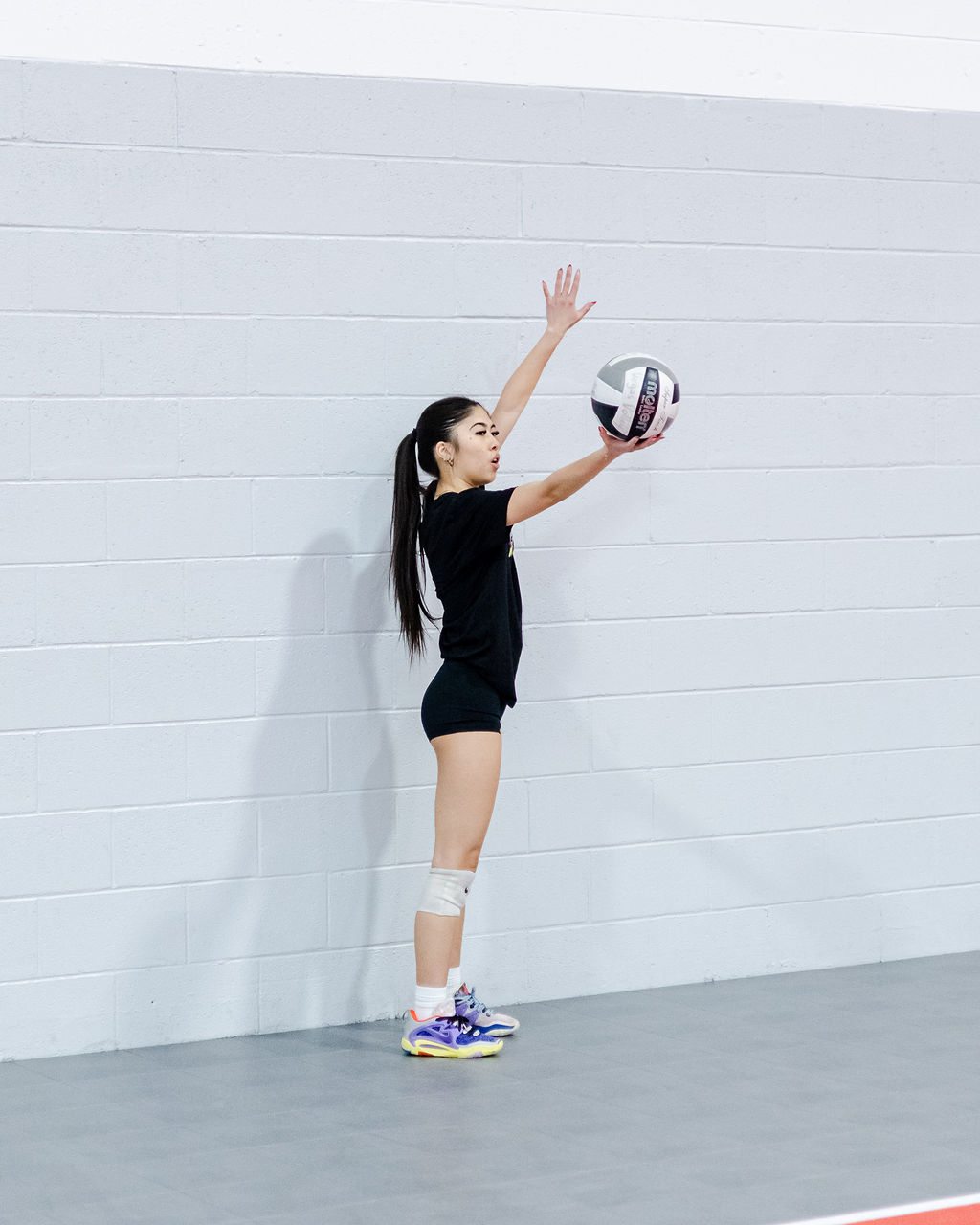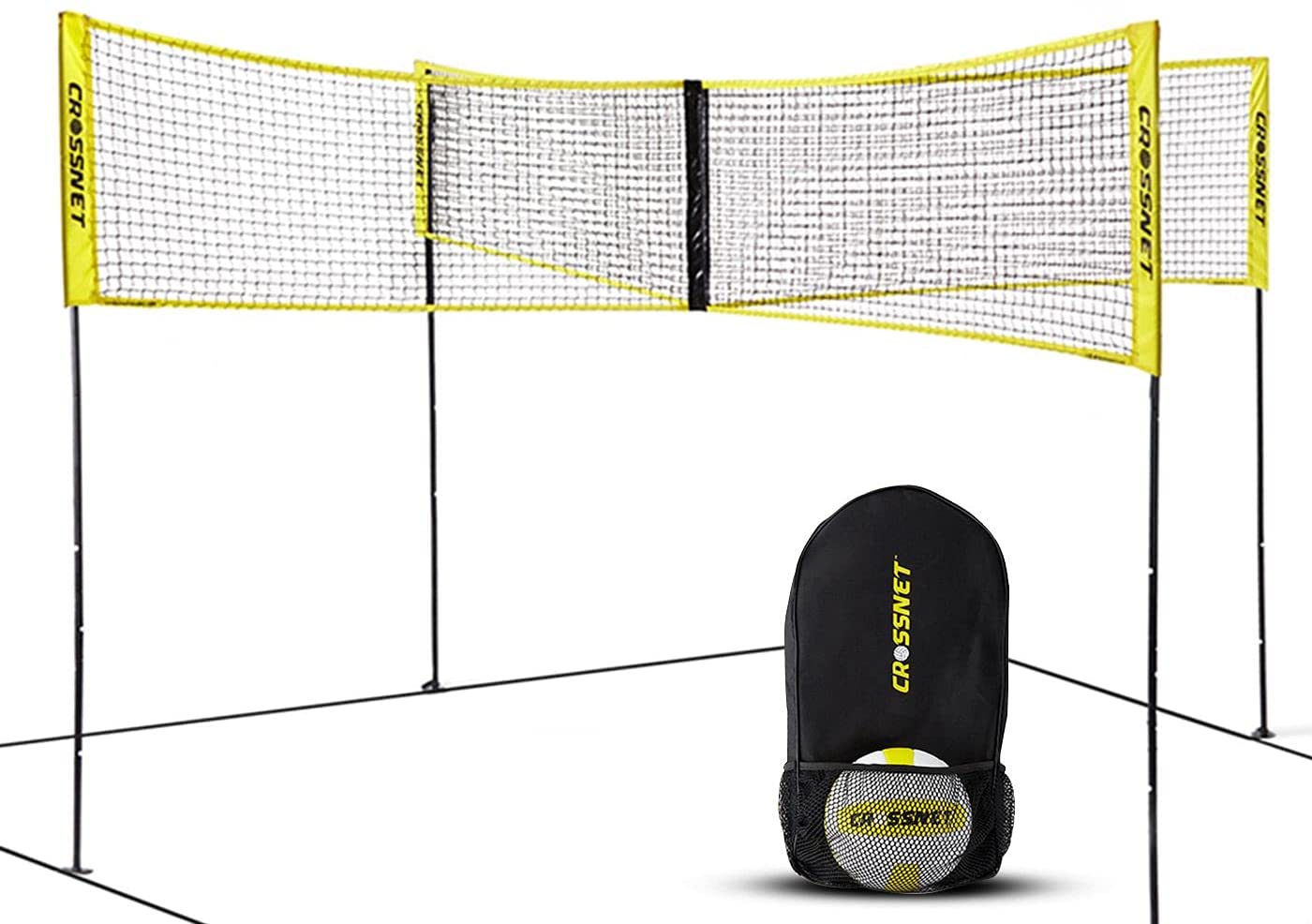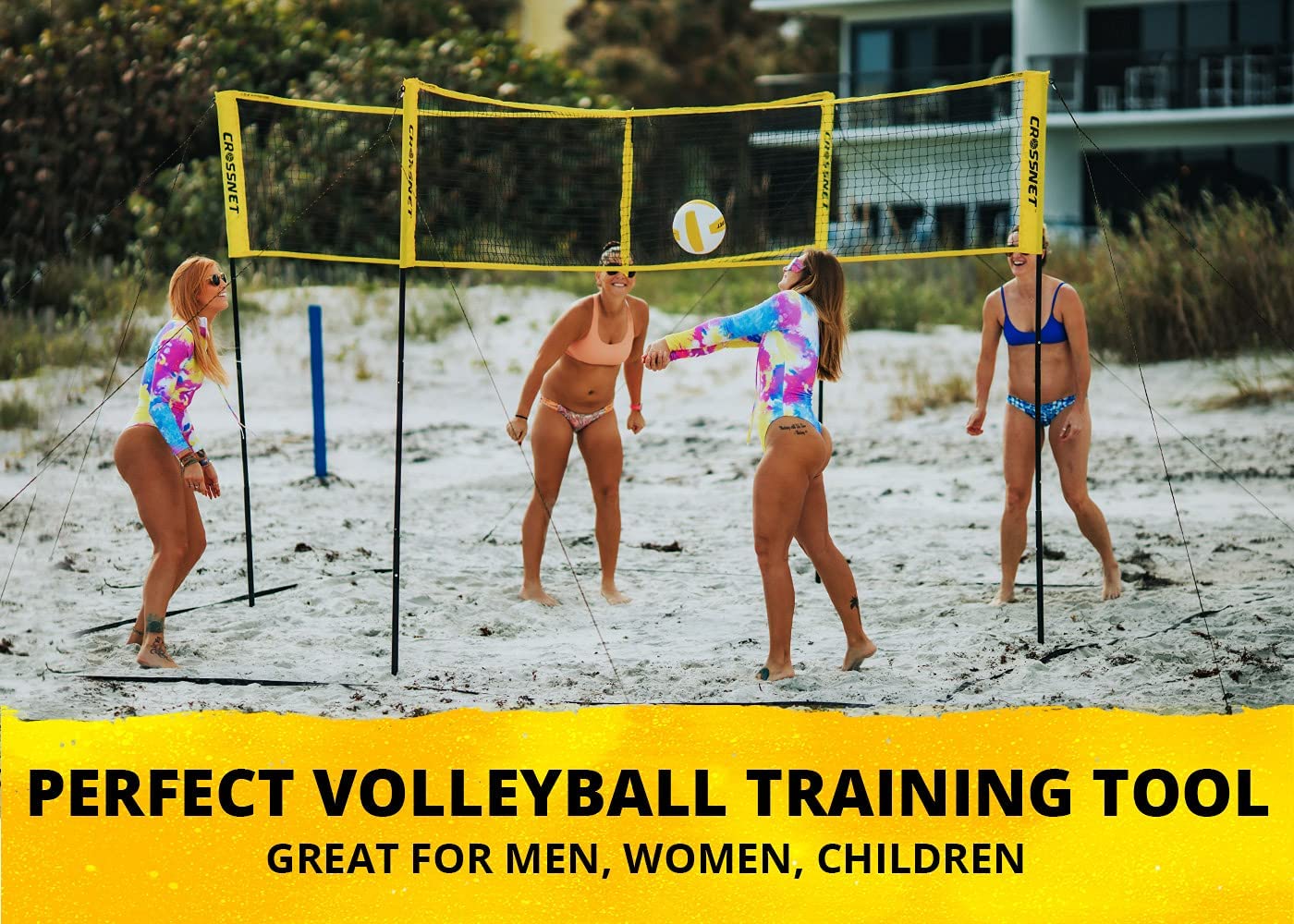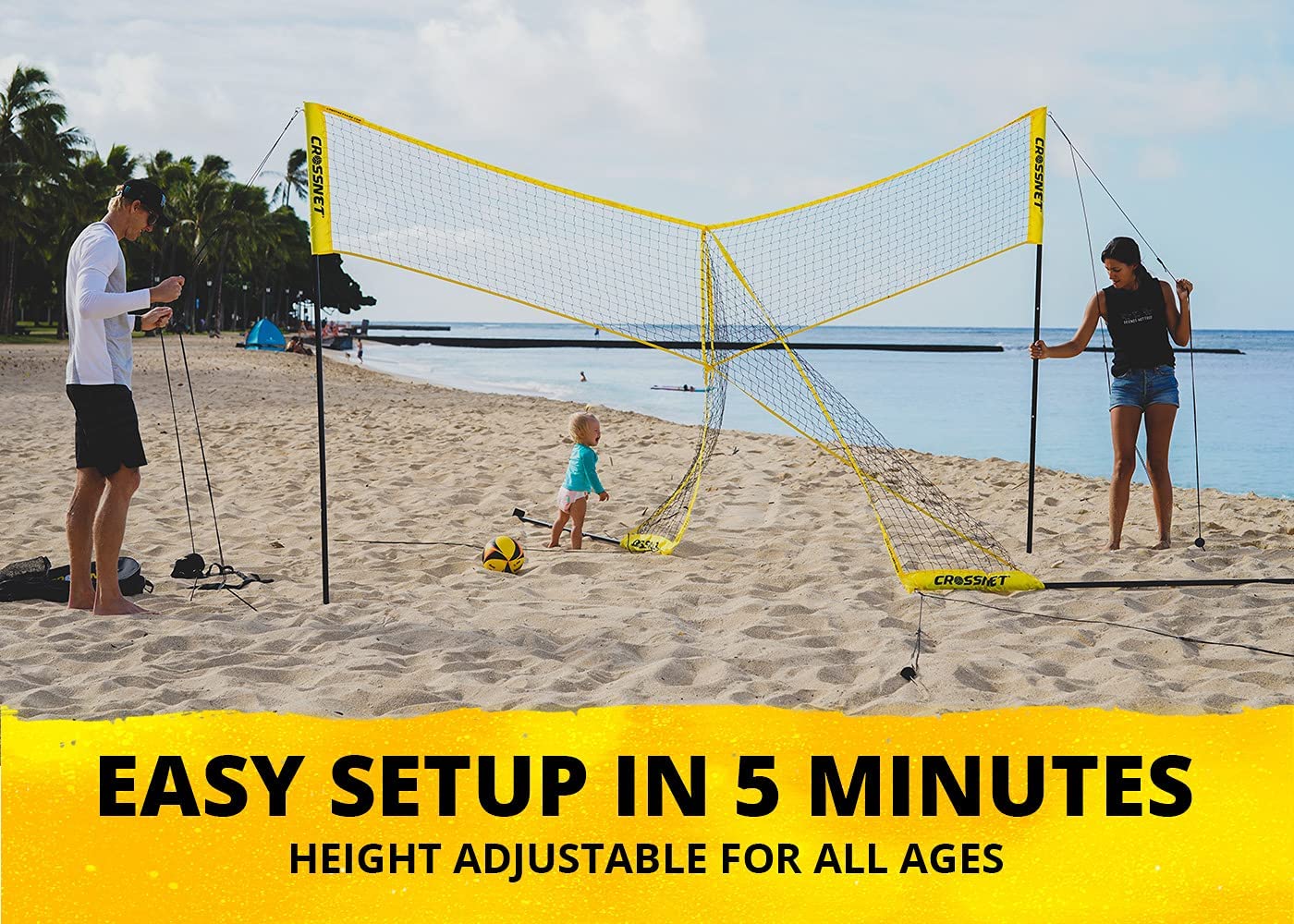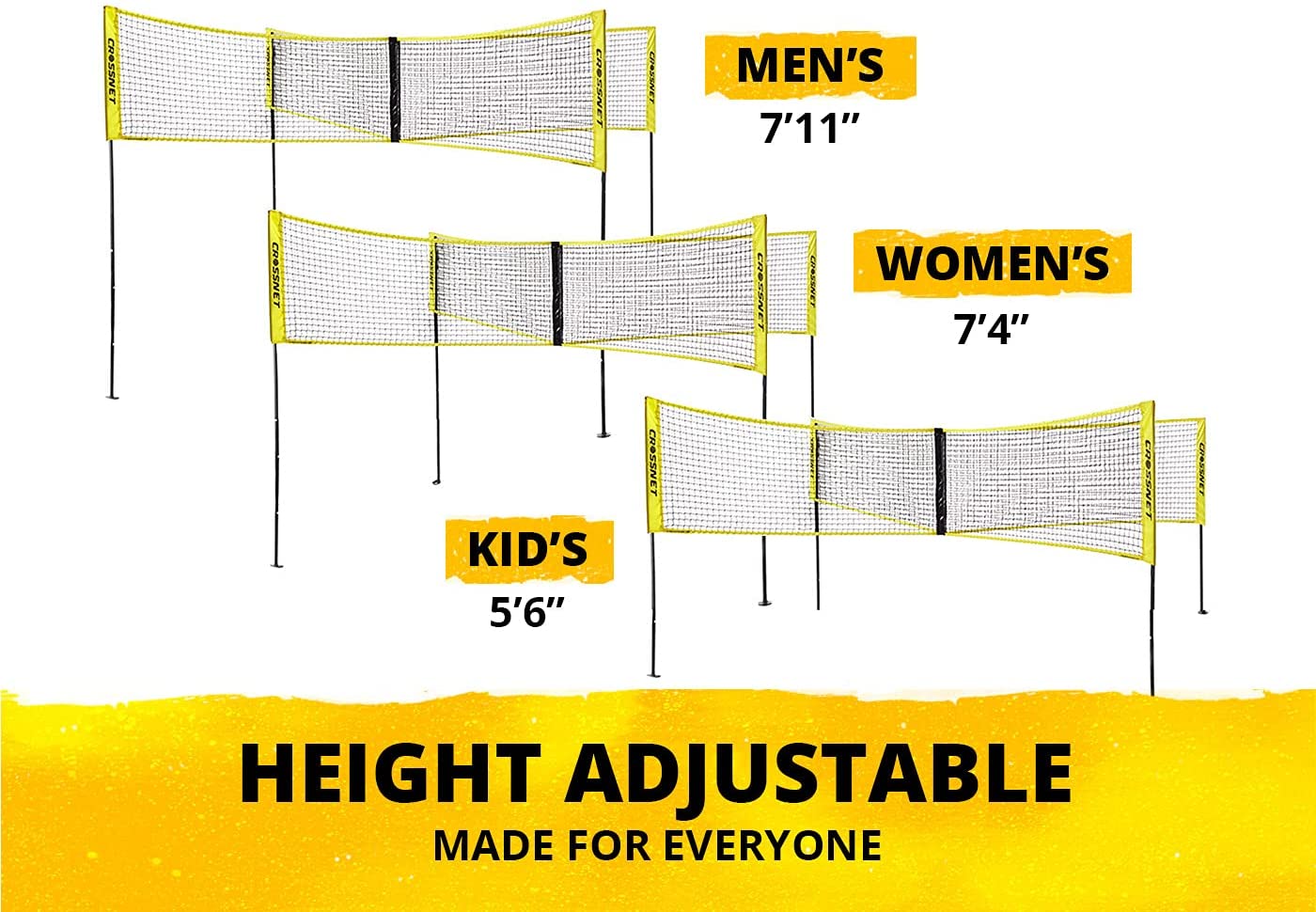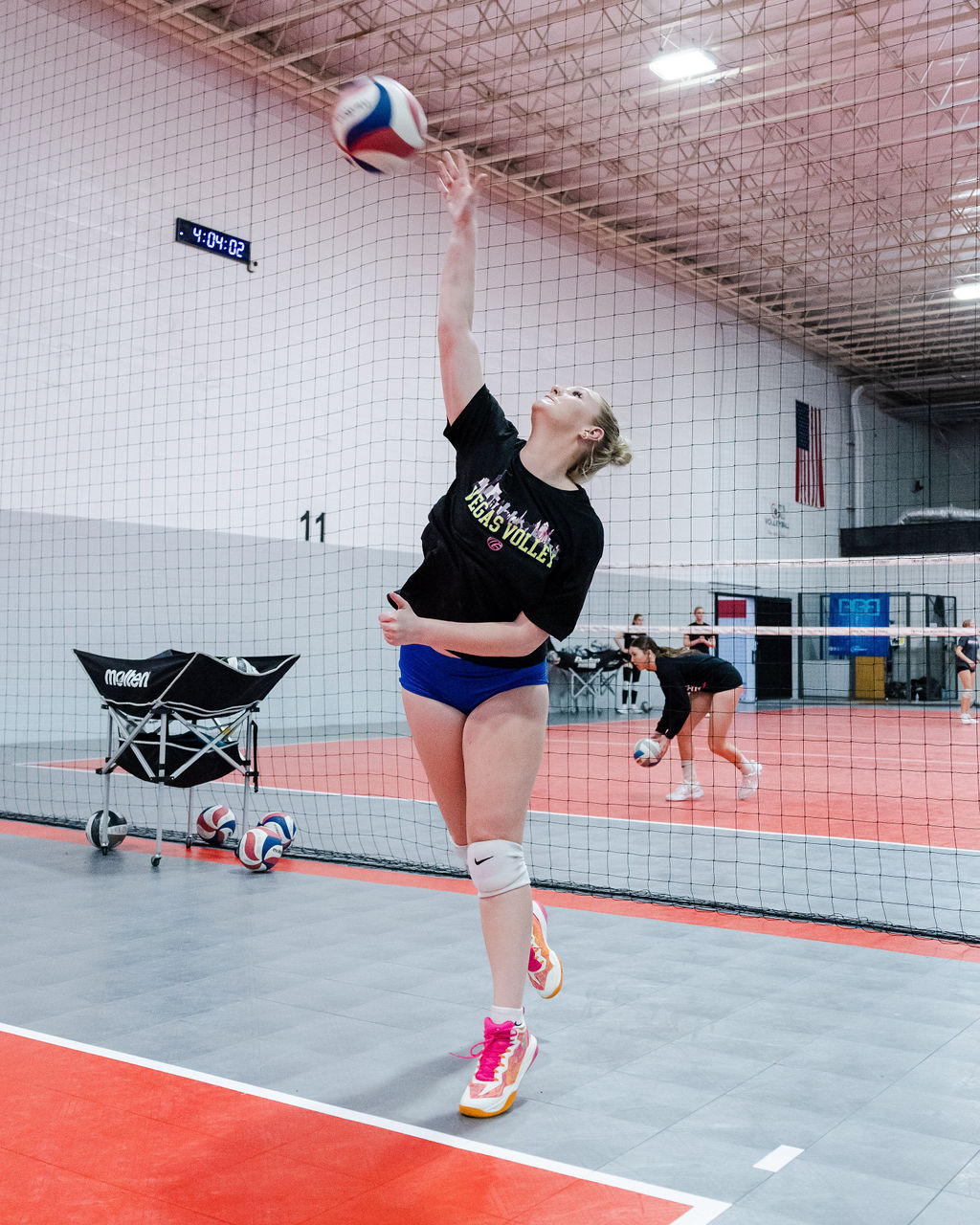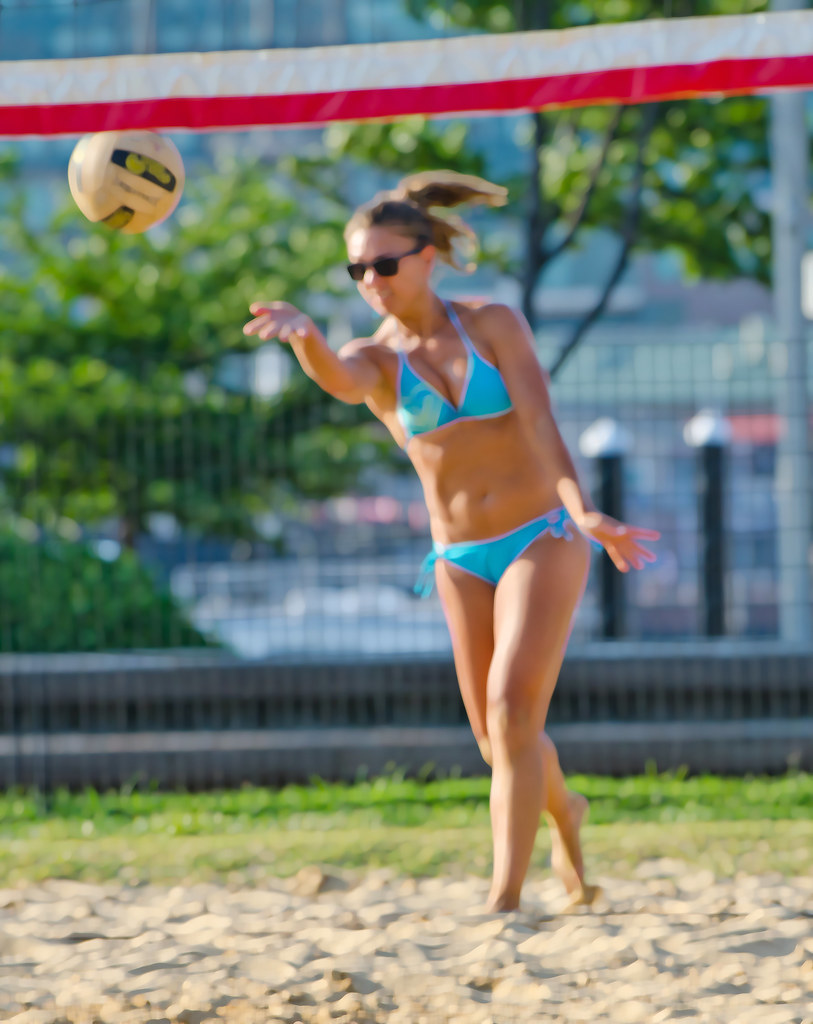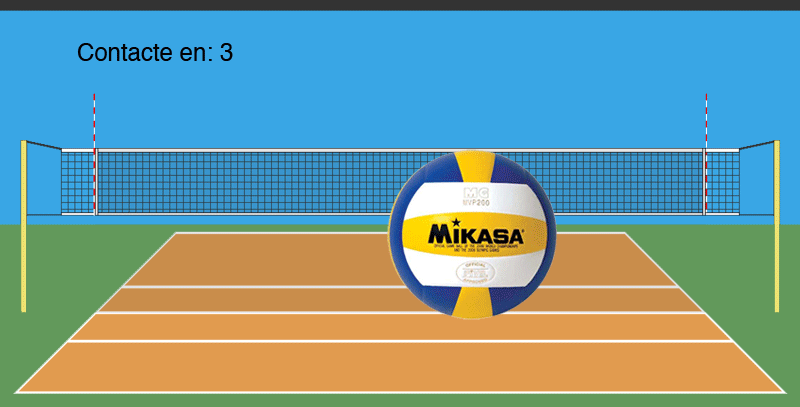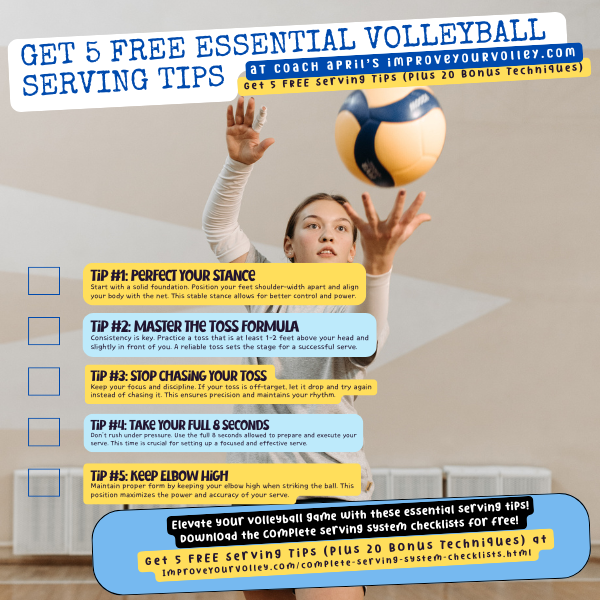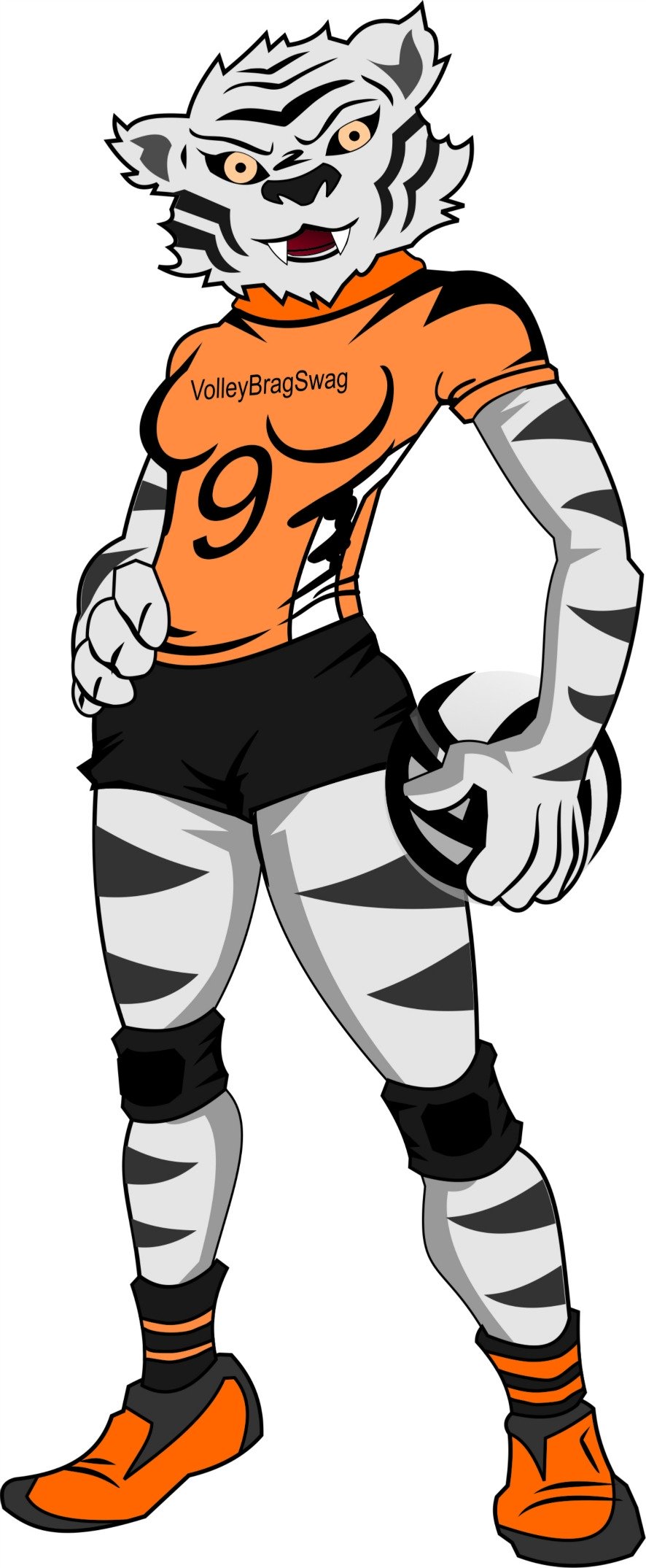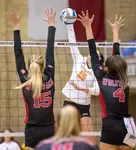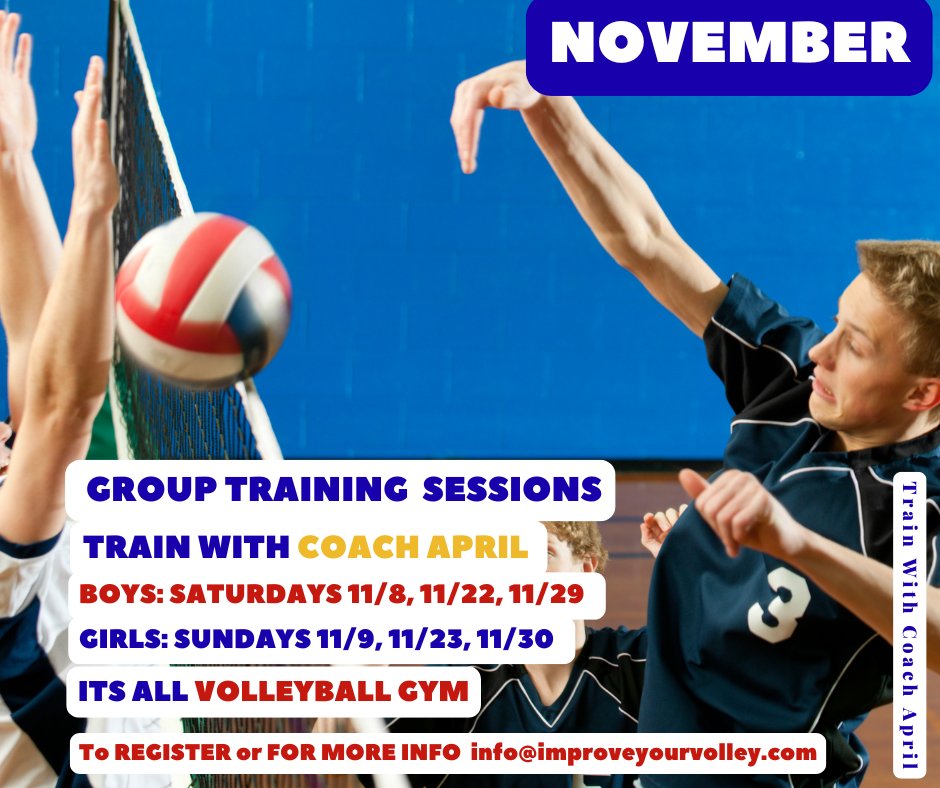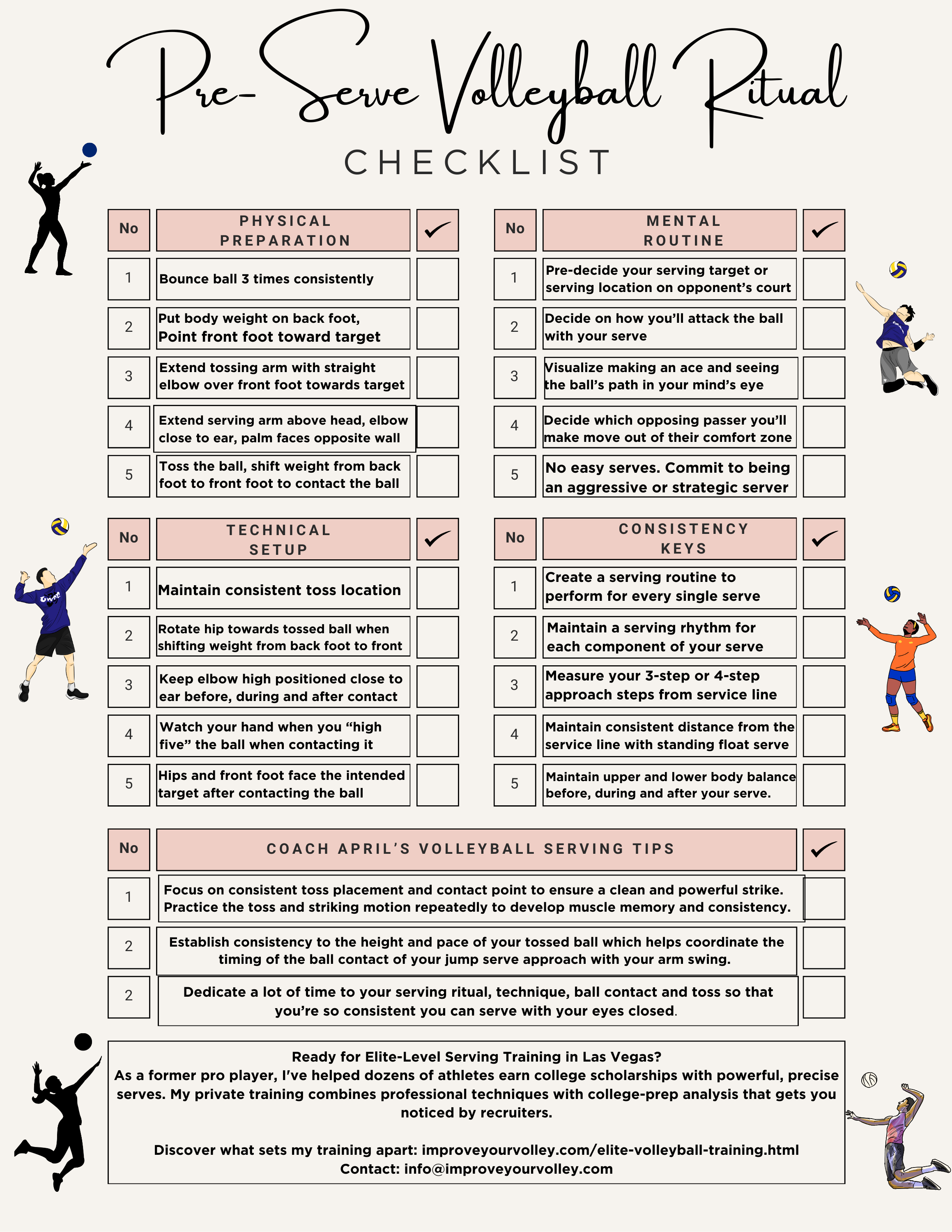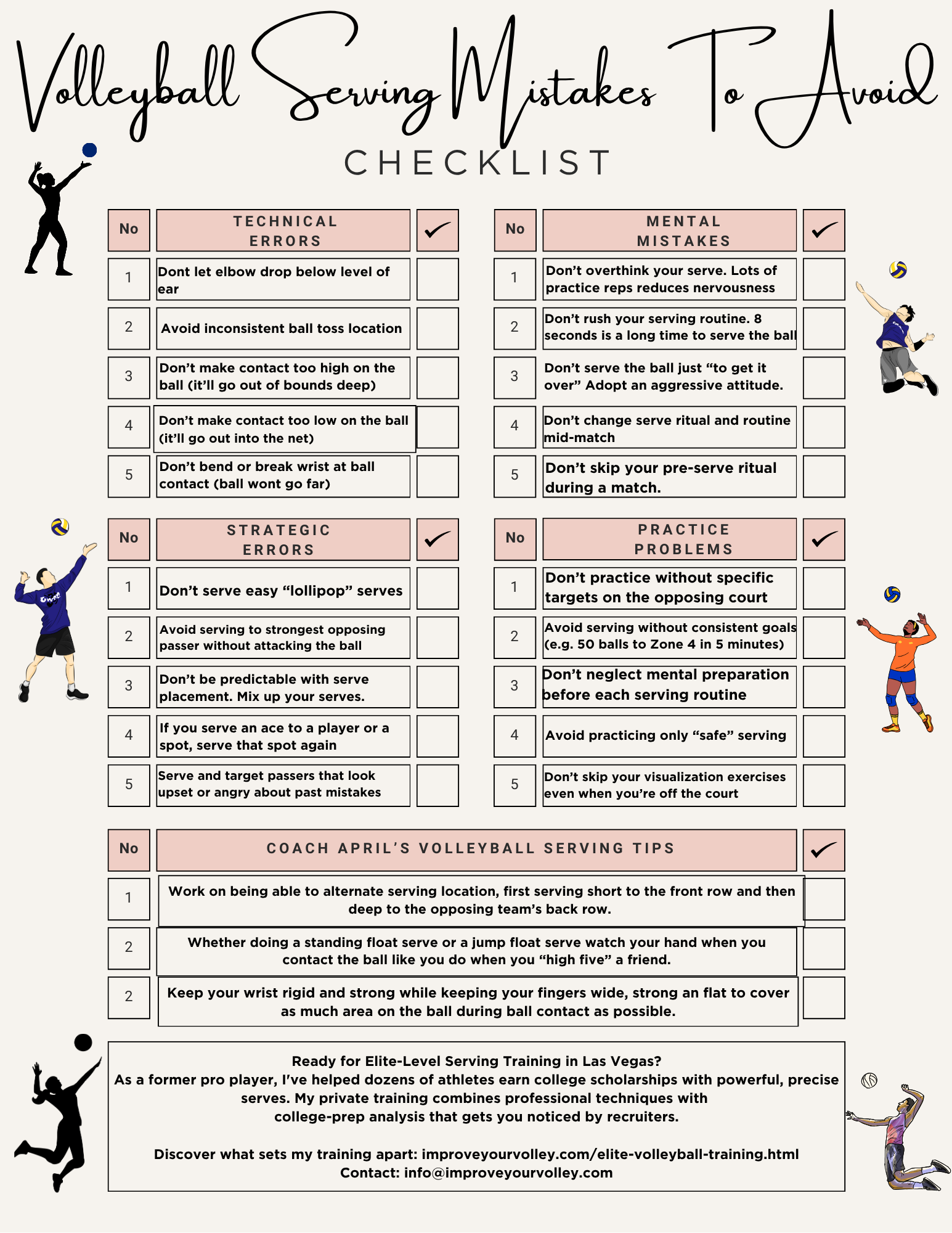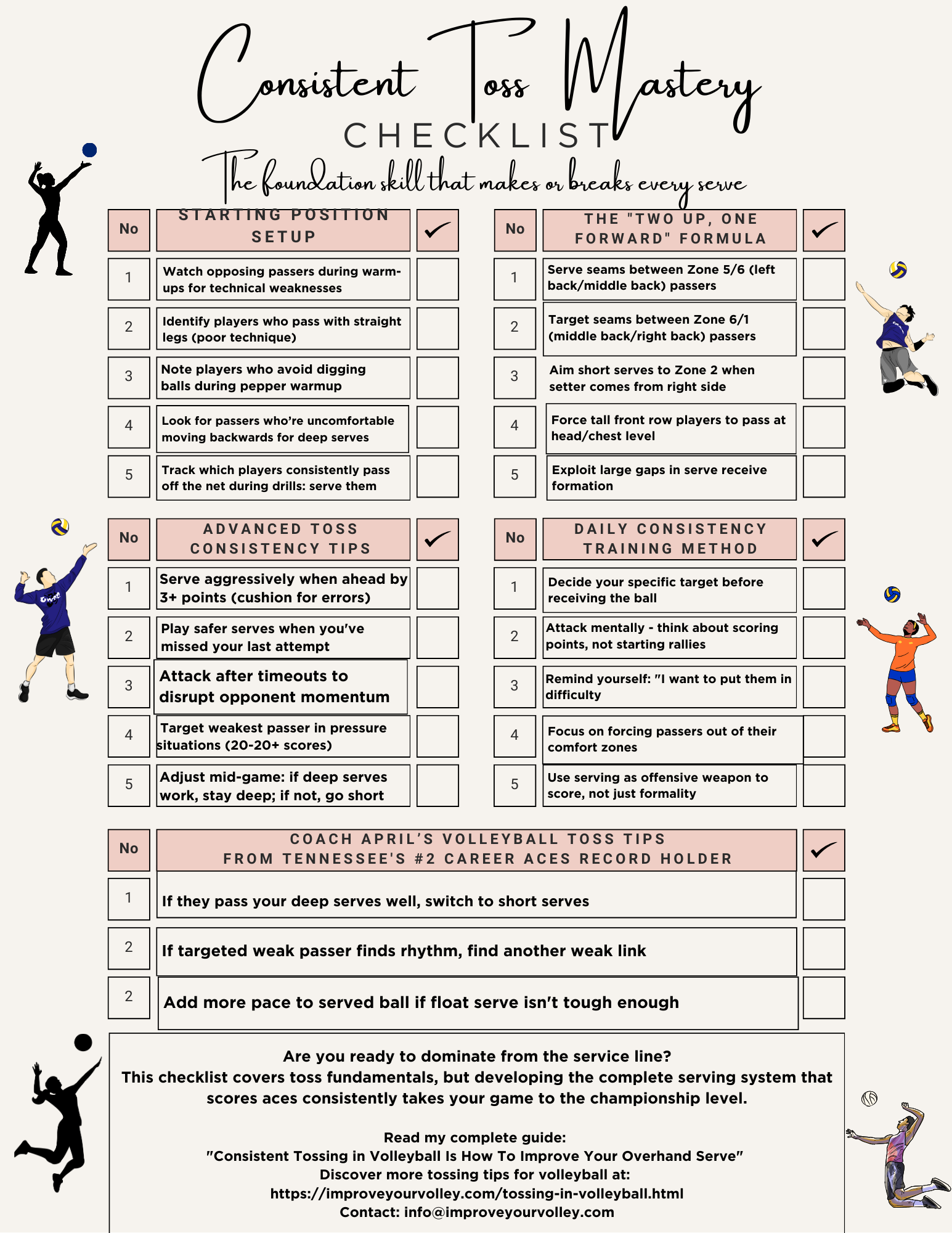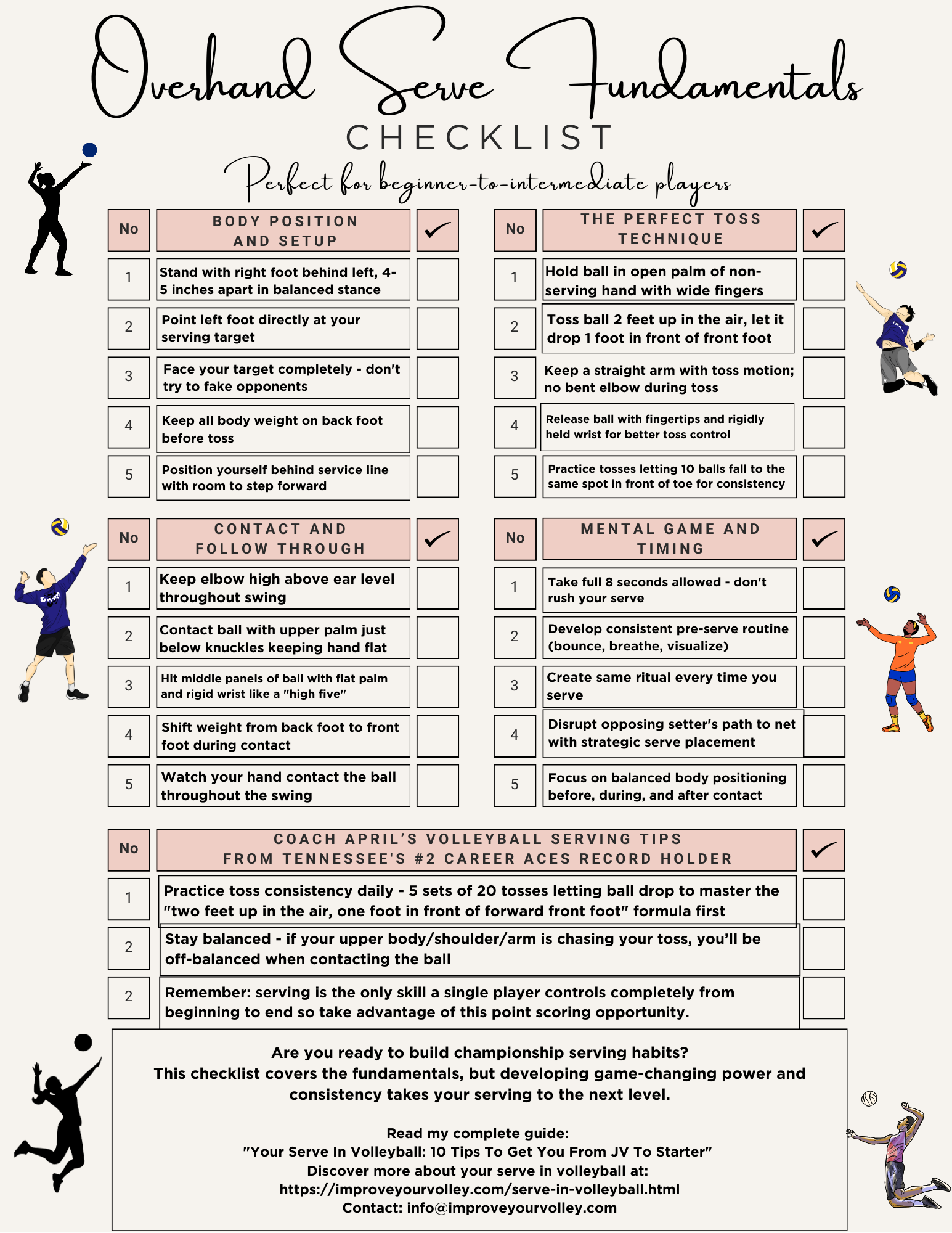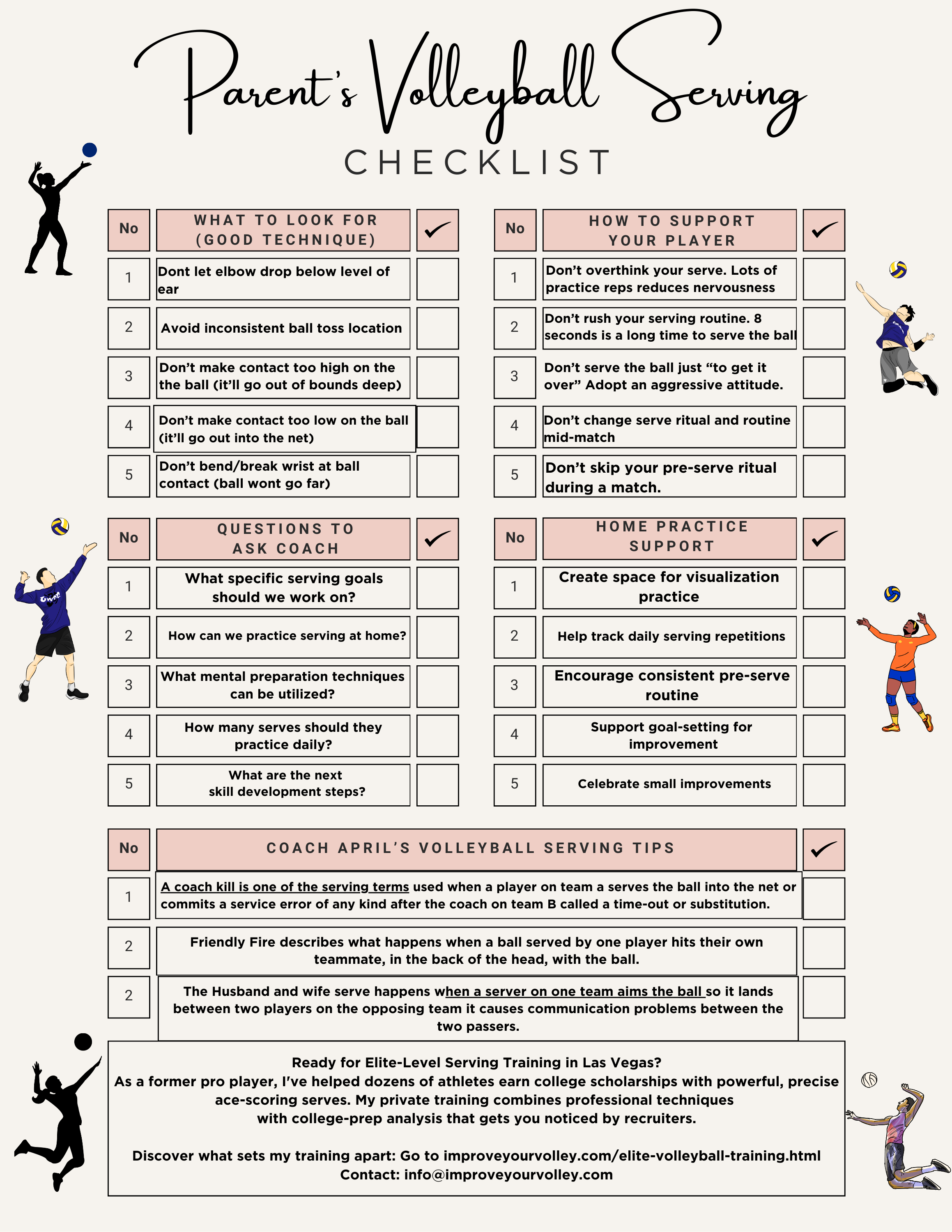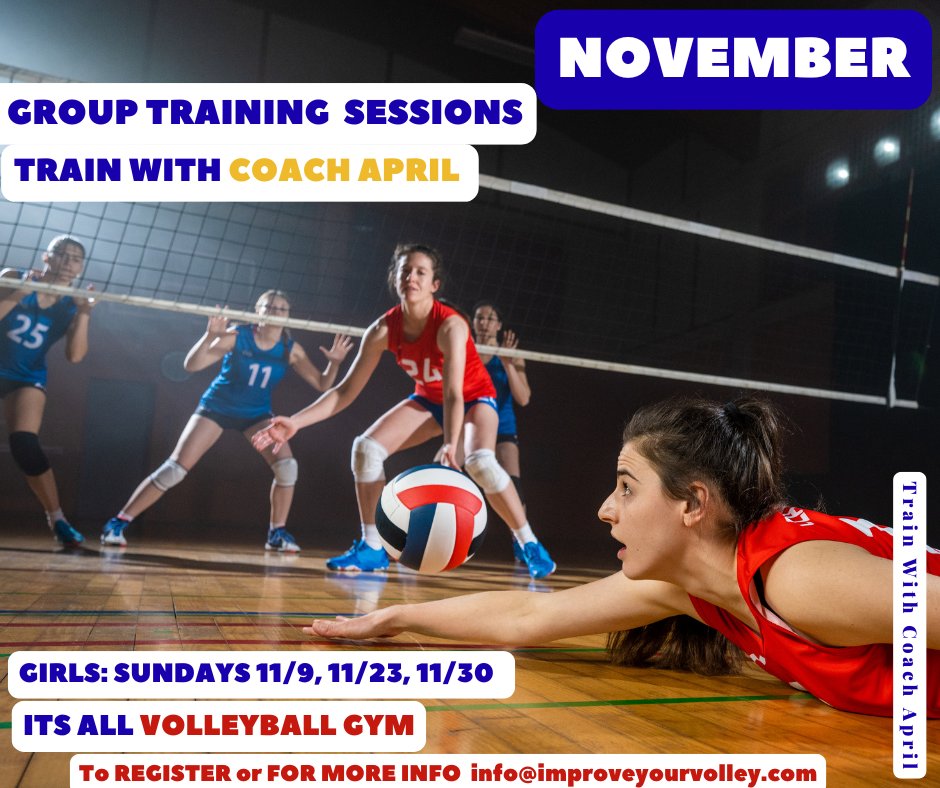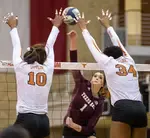- Improve Your Volleyball with Coach April
- Volleyball Techniques Fix Your Pass, Set, Serve,
- How To Serve In Volleyball
How To Serve In Volleyball Two Tips On How To Develop A Tough Serve
Learn how to serve in volleyball with step-by-step instructions. Could adding 3 aces per game make you a starter? My complete guide is for all skill levels
So just imagine you were competing in an important conference game.
It's match point and you're walking back to serve.
Your teammates are counting on you.
The opposing team is watching you nervously trying to figure out where, how and to who you're about to serve to.
In this moment, you hold complete control over what happens next.
No blockers, no setters needed - just you and your serve.
Here's what most players don't realize: serving is the ONLY skill in volleyball where you have 100% control from start to finish.
How about THAT for power?
They treat serving like its just a way to get the rally started, like a formality, instead of the point-scoring offensive weapon it really can be.
If you could add just 2-3 service aces per game to your stats, wouldn't that dramatically increase your value to any team?
Ready to take your serving to the next level?
I help dedicated athletes who've learned basic serving but feel stuck at their current level conquer next-level serving technique without rebuilding from scratch through my proven methods that elevate good servers to elite status.
My private training sessions are specifically designed for college-bound athletes who refuse to settle for "good enough" serving.
Limited spots available for serious players only.
Vegas Volley Girls 18s, coached by Coach April outside hitter @sof.hamm1, class of 2025 shows the overhand serving form she used all weekend to score a team high of 43 aces during the three day Las Vegas Classic... one of the ways she helped captain the team to a 9th place finish.... the highest finish in Vegas Volley’s 4 years of existence.
That's exactly what you'll learn in my "How To Serve In Volleyball" guide - how to transform your serve from a simple 'let me just get the ball-over-the-net' motion into a strong, reliable, consistent strategic weapon that wins games.
In order to learn how to serve for points, you need to develop two things
- tough serving skills
- an aggressive mindset
Katelyn with the Tough Jump Float Serve
How To Serve In Volleyball
Why Would You Want To
Develop A Tough Serve?
Why do you want to develop a tough serve?
Once you've learned the basics on serving then you want to take advantage of your serving opportunity because its the one skill in volleyball that you do alone - which you and only you... control...
This means
- you can make it easy
- you can make it difficult
for the opposing squad to easily run a play and score points against your team
Think about who is the best server on your team.
Don't they always seem to know exactly where they're serving before they even get the ball?
That's not coincidence - it's strategy.
For Beginners A Step-By-Step Guide
How To Serve In Volleyball
Now that I've explained to you about the mindset needed to consistently serve aggressively, let's break down the act of serving into step-by-step instructions for our beginner friends:
1. Positioning
Start by standing behind the service line, the court boundary line located 30 feet from the net on each side of the court.
Make sure you are
- standing in a balanced position
- with one foot in front of the other
- in the shape of the letter "L" with
- feet positioned just outside your shoulders
- with the weight on your back foot and
- your front foot pointed in the direction of where you plan to serve.
Right-handed players usually put their left foot slightly ahead (and vice versa for left-handed players).
2. Ball Grip
Hold the volleyball in your non-dominant hand.
The other hand/arm (the dominant or serving hand), is extended above your head with palm of hand kept flat and facing the opposite wall, ready to strike.
Hold the volleyball in your non-dominant hand.
3. Focus and Decide
Decide where you intend to serve.
Think about aiming at a specific player or a specific place, zone or position on the court.
4. Your Toss
Extend your non-dominant arm and toss the ball upwards.
The height of the toss can vary, but it's crucial to toss the ball consistently to the same height every time.
I usually advise to toss two feet up in the air and one foot in front of your front foot.
5. Ball Contact
As the ball begins to descend from the toss, step into the serve with your hips open to the net.
Always follow through with your swing.
6. Evaluation
After every serve, assess your performance. How close was the serve to your target?
Did it have the desired trajectory and power?
This self-evaluation is crucial to improving your serving skills over time.
Remember, these steps serve as a basic guide.
Consistency comes with practice, and with time, you'll be able to add more power and accuracy to your serve.
Once you've mastered the basics, isn't it time to expand your serving arsenal?
The best servers have multiple weapons - here's how to build yours.
Ella Serves An Ace Between The Left Back and Middle Back Passers
Understanding Different Types of Volleyball Serves
Now that we've broken down the basic steps to serve a volleyball, let's explore some different types of serves.
How To Serve In Volleyball
The Underhand Serve
1. The Underhand Serve:
This is the most basic type of serve, often taught to beginners.
You'll hold the ball in your non-dominant hand, swing your dominant arm like a pendulum under the ball, and strike it gently.
The serve follows a low trajectory and is slower, making it easier for opponents to return.
How To Serve In Volleyball
The Overhand Serve
2. The Overhand Serve:
A step up from the underhand serve, the overhand serve involves tossing the ball up and striking it with a lot of force.
This serve style can send the ball to the opponent's court much faster and is a commonly used serve in competitive high school, club, college and professional volleyball.
3. The Jump Serve:
This is an advanced type of serve where players use a spike-like action to serve the ball, adding an even more powerful and unpredictable element to the game.
The server tosses the ball high, takes a run-up, and jumps to strike the ball at its highest point.
 This overhand jump serve style can send the ball to the opponent's court much faster and is a commonly used serve in competitive high school, club, college and professional volleyball.
This overhand jump serve style can send the ball to the opponent's court much faster and is a commonly used serve in competitive high school, club, college and professional volleyball.This overhand jump serve style can send the ball to the opponent's court much faster and is a commonly used serve in competitive high school, club, college and professional volleyball.
How To Serve In Volleyball
The Float Serve
4. The Float Serve:
As the name suggests, this serve creates a floating effect. By hitting the ball in the middle with a firm wrist, servers can make the ball move unpredictably in the air, making it difficult for opponents to return.
How To Serve In Volleyball
The Topspin Serve
Watch how deadly Vegas Volley 17s outside hitter Siena Novak's topspin serve is
This is another advanced serve.
The server tosses the ball high, steps forward, and hits the ball in such a way that it spins forward rapidly.
Common Mistakes in Serving and How to Rectify Them
Despite one's best efforts, errors can creep into serving techniques. Here are some common mistakes and tips on how to rectify them:
1. Inconsistent Toss
The ball toss for the serve is crucial as it sets up the rest of the action.
If your toss is inconsistent, it significantly reduces your chance of a good serve.
2. Faulty Contact
Incorrect contact with the ball during the serve can lead to undesirable results.
The ball should be struck in the middle to maintain control over direction and power.
Practicing your striking technique can significantly improve your contact with the ball.
3. Lack of Target
Serving without a strategy or specific target can result in lost opportunities to put the opponent under pressure.
Always have a serving plan, targeting either weak receivers or challenging zones on the court.
4. Overpowering the Serve:
While power is useful, an excessive focus on it could compromise accuracy, leading to missed serves.
Serving out all the time is something that can easily be fixed.
Trying to find a balance between power and precision should be the goal for every server.
5. Stiff Wrist
A stiff wrist during serving can result in the ball going in various undesired directions.
When serving, your wrist should be firm but flexible to allow for the whip-like motion needed for a precise, powerful serve.
Remember, everyone makes mistakes, and even the most experienced players are constantly refining their skills.
Be patient with your progress, and with regular practice, you'll see improvements in your serving game.
Your Serving Journey Starts Now
Every ace you'll ever serve starts with improving these fundamentals.
Whether you're working on your first overhand serve or perfecting your jump float, remember this: serving is the one moment in volleyball where you're completely in control.
The players who embrace this responsibility - who walk back to serve with purpose and strategy - are the ones who become game-changers.
They're the servers opponents whisper about during timeouts.
They're the ones coaches trust in crucial moments.
Tomorrow at practice, implement just ONE concept from this guide.
Maybe it's deciding your target before you serve.
Maybe it's focusing on a consistent toss.
Whatever you choose, commit to it for an entire practice.
Because here's the truth: In 30 days, you'll either have a serve that changes games, or you'll still be hoping someone else scores the points.
Which player will you choose to be?"
Ready to take your serving to the next level?
I help varsity servers who know the rules but want to maximize every opportunity master next-level strategic serving without rule violations through advanced techniques that use every legal advantage to dominate service games.
My private training sessions are specifically designed for college-bound athletes who refuse to settle for "good enough" serving.
Limited spots available for serious players only.
Do You Follow Me on Pinterest?
Follow me on Pinterest Volleybragswag to improve your game even faster!
I share alot of individual, partner and easy-to-do volleyball serving drills we do in class with my followers.
Many of these volleyball practice drills you can do at home by yourself or try at your next practice with your teammates.
If you're a B team or JV player trying to make varsity next year...your goal should be to complete 1000 reps a day of at least three of the basic skills on your own...volleyball passing, serving and setting should be at the top of the list.
How To Serve in Volleyball:
Where Do you Go From Here?
Your three options are:
- You can learn more about Serving by visiting the related links below.
- Follow the suggested reading on our Sitemap page Learning How To Play (Sitemap)
- Or visit the pages in the How to Play Volleyball section in the drop down menu at the top of the page to get started.
- Before leaving this page Say "Hi" to Miss Tattoo the Tiger wearing the #9 jersey below. Miss Tattoo is the starting defensive and serving specialist for the All Beast VolleyBragSwag All Star team
If your athlete struggles with consistent serve receive, gets subbed out, or is overlooked for playing time—this is the fix you’ve been looking for.

Struggling with passing consistency?
I help talented passers tired of getting pulled from games because of inconsistent serve receive skills BUILD passing confidence without expensive private lessons using the same 3-step system that's helped dozens of my athletes get recruited.
Download my eBook for $17.99 and start building the passing confidence that keeps you on the court—and gets you seen by college coaches.
From Lady Vol to Legend: Coach April Produces Powerful Passionate Players...is that you?
What Are You Looking For?
Click to Download Your Pre Serving Ritual Mastery Checklist pdf:
🎯Volleyball Pre Serving Ritual Guide -
Players! Learn How To Transform Your Serve from Weak to Weapon
Click to Download Your Parent's Volleyball Serving Checklist pdf
🎯Parent's Volleyball Serving Checklist Guide
Parents! Help Your Player Develop Championship Serves (Even If You've Never Played)

Hi there!
Thanks for stopping by. Hope you learned something today that will help you reach your volleyball goals.
Be sure to subscribe to my email newsletter so you can learn more each week!
Stay strong! Stay motivated!
-Coach April

SUSCRIBE to my email newsletter below!
 Click to learn more about the weekly volleyball classes and clinics or email info@imrpoveyourvolley.com for information
Click to learn more about the weekly volleyball classes and clinics or email info@imrpoveyourvolley.com for informationCongratulations to my seven Boys-18s Vegas Volley club players who played in two state championship finals yesterday, the 3A and 5A State champinship finals at Sunrise Mountain High School.
TOURNAMENT CHAMPIONS!
A-1 Vegas Volley VBC
In It To Win It Tournament
May 2 - 4, 2025 Tournament
Gold Medalists
18s Premier Division
Vegas Volleyball's Unsung Heroes: Celebrating Moms with Peace Love Volleyball Shirts
Ready to energize your volleyball mom journey?
Subscribe to my 'Producing Powerful Passionate Peaceful Players' email list above on ImproveYourVolley.com.
You'll receive energy-boosting tips, exclusive insights from me, Coach April Chapple on maintaining momentum in volleyball.
Let's power up the Vegas volleyball scene together!
Recent Articles
-
Tips For Short Volleyball Players: Top Strategies to Beat Big Blockers
Jan 21, 26 04:56 PM
You don't need to be 6 feet tall to dominate at the net. Learn my tips for short volleyball players to use to outsmart bigger blockers and score more points. -
Essential Skills for a Hitter in Volleyball: Tips For Short Attackers
Jan 11, 26 07:05 AM
A short hitter in volleyball can aim the ball for the seam of the block to score since its harder for defenders to block at the net or dig up in the back row. -
10 Hitting Tactics Short Volleyball Players Use Against Big Blockers
Jan 11, 26 06:57 AM
These are 10 hitting tactics that short volleyball players, can rely on hit against and sideout and score against teams with big blockers in the front row.
